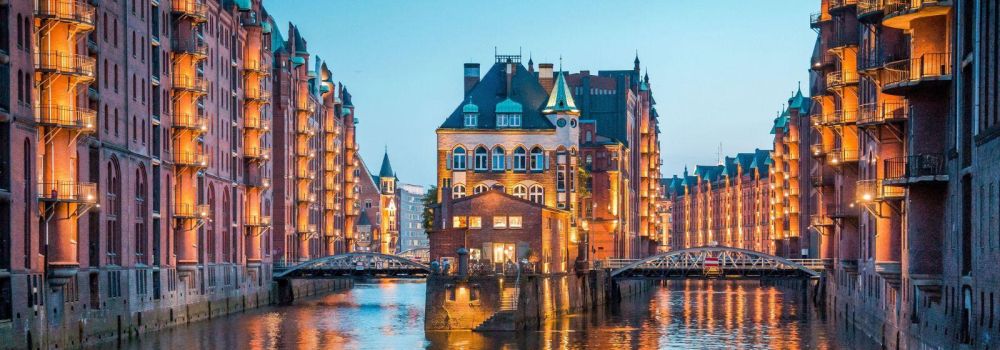

Hamburg's journey as a tourist destination began with its historic port, the Port of Hamburg. Known as the "Gateway to the World", the port has been a center of international trade since it joined the Hanseatic League in the 13th century. This rich maritime history laid the foundations for Hamburg's touristic appeal, as it drew traders, merchants, and eventually tourists from around the world.
The city's reputation as a place of wealth and cultural exchange was bolstered in the 19th century with the construction of grand buildings like the Hamburg Rathaus (City Hall) and the Speicherstadt, the world's largest warehouse district at the time, which has since gained UNESCO World Heritage status.
Tourism in Hamburg took on a new dimension in the 20th century with the rise of cultural attractions such as theaters, museums, and the famous Reeperbahn entertainment district. Post-World War II reconstruction and investment further enhanced the city's infrastructure, making it more accessible and appealing to visitors.
The establishment of events like the Hamburg Ballet Days and the Harbor Birthday celebration, alongside the revamp of the HafenCity area, transformed Hamburg into a vibrant hub for both cultural enthusiasts and leisure tourists.
In recent years, tourism in Hamburg has been characterized by sustainable and experiential travel. There is a growing interest in eco-friendly accommodations and tours that offer authentic local experiences. Visitors are more inclined to explore the city's green spaces, like Planten un Blomen park, and enjoy farm-to-table cuisine in its many restaurants.
Hamburg's tourism sector has also seen a surge in the use of digital technology, with apps and online platforms making it easier for travelers to discover hidden gems and personalize their itineraries.
A significant trend is the rise of the Elbphilharmonie as a beacon of contemporary culture and architecture. Opened in 2017, this iconic concert hall has quickly become one of the city's most-visited landmarks, signifying Hamburg's commitment to combining tradition with modernist flair.
The tourism landscape in Hamburg continues to evolve, with a focus on sustainable development and maintaining a balance between innovation and preservation. The city remains a dynamic destination that cherishes its past while continuously reinventing itself to fascinate new waves of travelers.